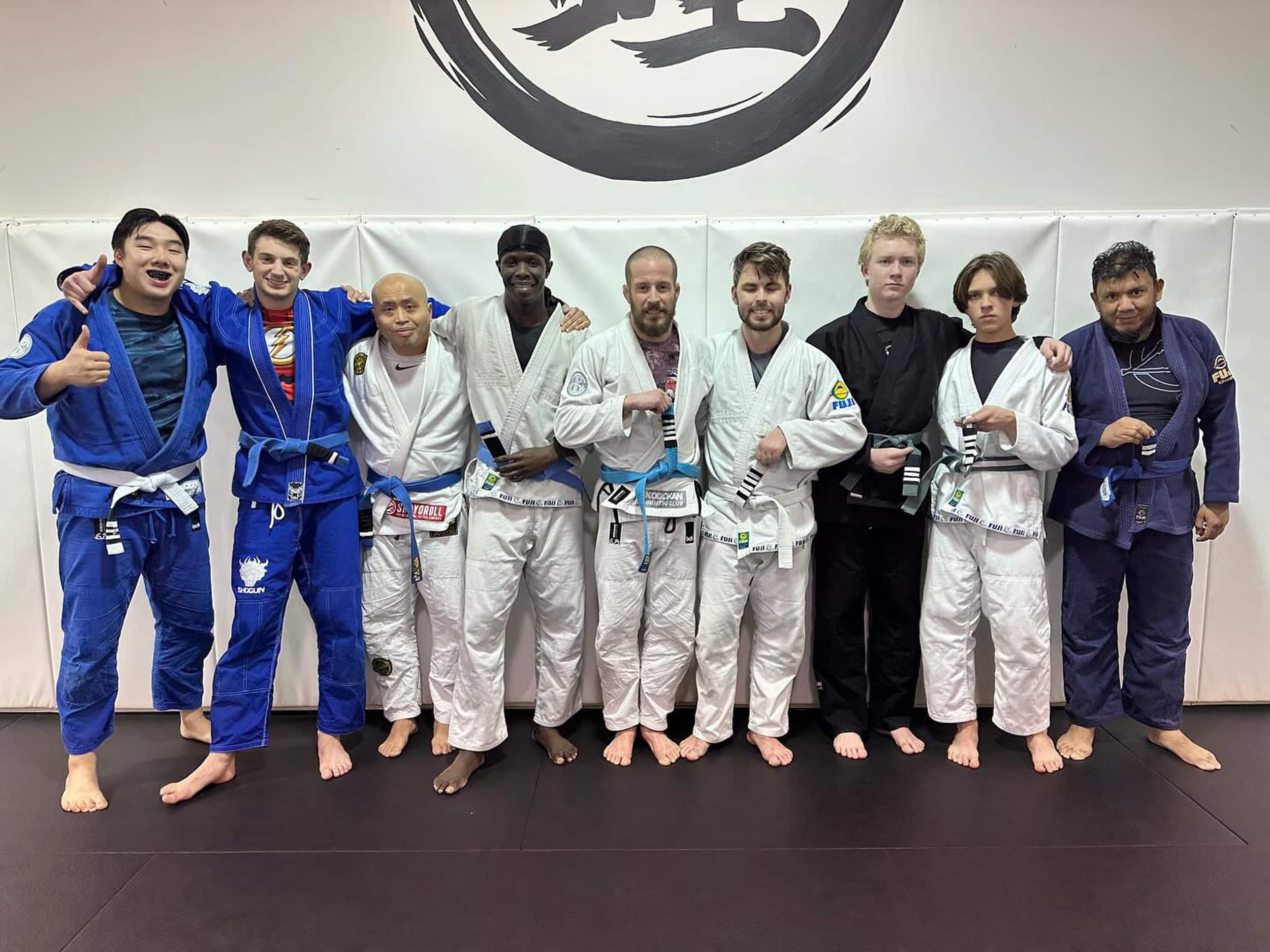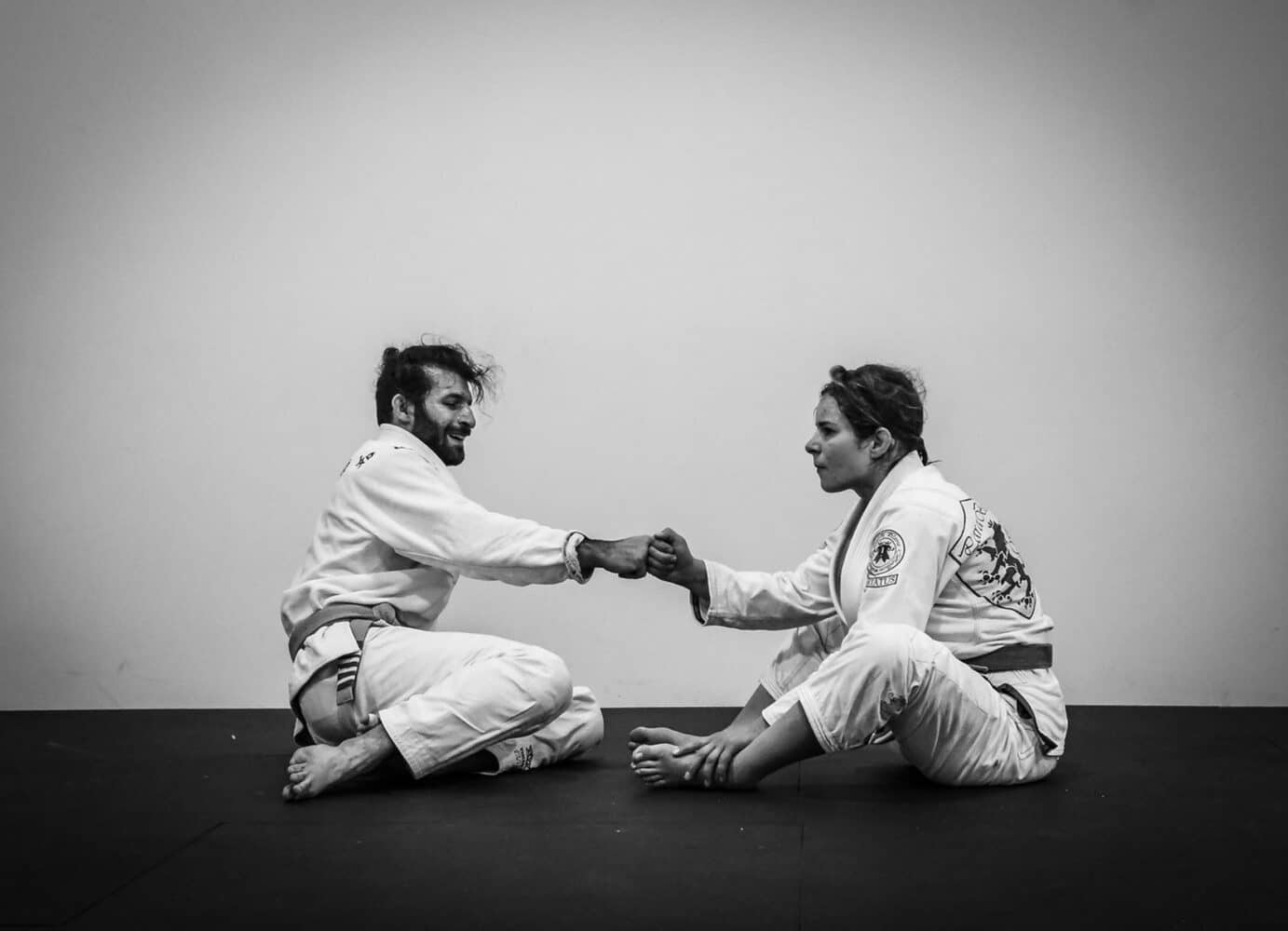Rolling in new territory
Rolling in new territory
The sport and discipline of Jiu-jitsu has grown internationally. The consequent opening of many academies in cities around the world means that Jiu-jitsu is now a sport that can be practiced almost anywhere. As long as we pack a gi, a rashgaurd, and our belt, we can train all over
Rolling in new territory for the first time can be an intimidating experience. In order to get over the first time jitters of training somewhere new, below is a list of five things to expect when rolling in a new academy while away from our home dojo.
1. Some things will feel the same
Being in a new city and far away from home, means we are literally out of our comfort zone. Everything from the food to the climate, to the language may feel different. We may also miss familiar faces and our daily routine.
Despite being far from home, when we roll in a new academy there are many things that instantly remind us of our dojo and regular training. Stepping onto the tatami, seeing people wearing a gi, to the warmup routine are all elements that will feel eerily familiar.
Most importantly when we are physically grappling with an opponent, the Jiu-jitsu will feel the same because rolling is rolling! While Jiu-jitsu is infinite in its possibilities there are only a few basic positions we can be in, and the human body, with some variability in terms of size, generally consists of a head, a neck, a torso, and two arms and two legs. Moreover the intensity of Jiu-jitsu training is likely to be similar in different locations.
Rolling in different locations, no matter how far rom our home dojo, is likely to make us feel right at home. Jiu-jitsu is like a travel machine that transports us to a familiar place in our minds no matter where our bodies happen to be.
2. Some things will feel different
While many important things are likely to feel different, there are also some things that are bound to feel different when we roll in a new academy.
We may notice that the routine is slightly or even completely different. Some academies follow the routine of a warmup, followed by instruction, followed by partner drilling, followed by position specific training, followed by open mat. This is by no means a universal formula. Some academies may prefer to roll right after the warmup. This is just one example of various differences in the routine that may arise.
Other things that might feel odd can include differences in etiquette such as an expectation that we respond to all the professor’s instructions with “Oss”. While it is possible to try to ask the instructor what the rules for etiquette are at the new dojo ahead of time, we will probably be able to pick up most of the important things just by paying attention. We should expect that there will be a few things we are just not used to and we should ready to receive instructions and corrections.
No matter what the specific etiquette rules are in the new dojo, the twin qualities of respect and humility are the universal language of Jiu-jitsu. If we use this language it will go a long way towards putting our best foot forward onto new tatamis
3. We will be tested
Whatever Jiu-jitsu is, one thing it is not is easy. We can expect our new Jiu-jitsu adventures in new locations to test us and push us in new ways.
Not only will we be exposed to new professors, athletes, and techniques, our new training professor will likely want to see the quality of our Jiu-jitsu and try to learn from us as well. As much as we benefit from training in different locations, professors want to see what is being taught elsewhere and compare the pedigree of their fighters, training, and techniques with what we can display.
We should expect to roll with two or three of the most accomplished grapplers in the new academy right away. Additionally, we should xpect the professor to want to roll with us after you have already grappled a few rounds. We should remember to use discipline and technique and to use the right amount of strength in our sparring.
We should consider ourselves in a new dojo as a type of amabassodor for our home academy and view it as an opportunity to demonstrate our character rather than our athleticism.
4. We will learn something
Jiu-jitsu is a process of ever learning and it has even been said that Jiu-jitsu is infinite in terms of what can be learned. It is hard to say in advance what we will learn from training somewhere different from our home academy, as the specifics depend a lot on which academy we happen to go to, what fighters are present that day, who the instructor or instructors are, and even what day of the week it happens to be.
Speaking generally, rather than a specific technique or training regimen, one of the most valuable things we can learn from training in a different acadamy is in the effectiveness of our own Jiu-jitsu. When we see that our Jiu-jitsu is effective in a completely different environment where no one knows us and no one owes is anything we can begin to believe in our Jiu-jitsu and we begin to understand how far we have come.
While it might seem strange that the most valuable thing we can learn from training in a new environment is a mental or psychological dimension. Rather than a technique or something that makes us physically stronger. This make sense once we understand that the Jiu-jitsu journey is not just a physical journey but also a mental, spiritual, and psychological journey.
5. There is kindness in Jiu-jitsu
If respect and humility is the universal language of Jiu-jitsu. Then kindness is its fundamental underlying grammar. If we are planning to roll somewhere new we should be sure to contact the dojo ahead of time. Indicate how long we will be training for and inquire as to what the cost will be for training. While many academies will not charge us anything for rolling a few times. Some academies will have a policy where guests must always pay to train.
Apart from the question of payment, most academies will welcome us with open arms. They will be sure to introduce us to the class. Explain the structure of training and be sure to make sure us feel comfortable and welcome. The acts of kindness instructors can take are only limited by the imagination. But can include arranging to give us rides to or from training, not charging for training, and so on. It is not an exaggeration to say we may even feel like a guest of honor while training somewhere new.
To be received in such a way so far from home is truly a humbling and memorable experience. Which can only add to the depth and richness of the memories and friendships we create along our Jiu-jitsu journey.
Rolling in new territory Conclusion:
With the growth of Jiu-jitsu we can now train almost anywhere around the world. We may seek out specific dojos where great instructors or fighters are based. Or we may just want to train in a place we happen to be in for work or vacation.
Training somewhere new can be an intimidating experience. But if we remember some key things it is an adventure worth trying. Some things will feel similar, some things will feel new. We are sure to be tested, but also to learn something even if it is only about the effectiveness of our own Jiu-jitsu. No matter what the situation, we should bring our A game and show the qualities of humility and respect. As Jiu-jitsu is really a journey into the development of our character.
Rolling in new territory Takeaway:
If we show the positive qualities we acquire through regular hard training. We will be sure to receive much in return from the Jiu-jitsu schools we visit in terms of good training, kindness, memories, and friendships we make along the way. Most importantly, we will soon realize that the world is our home when we know Jiu-jitsu. And are willing to embark on the adventure that is the Jiu-jitsu journey!

